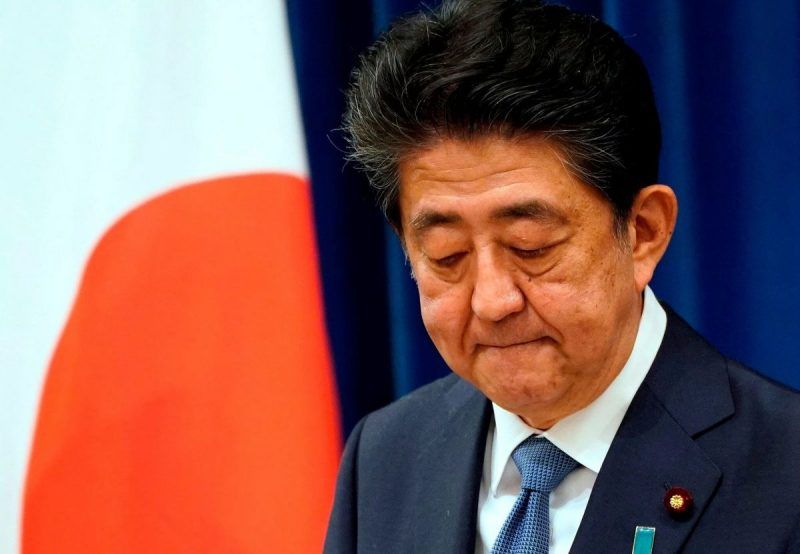
Prime Minister Shinzo Abe’s announcement on Friday that he would resign because of poor health was a rather abrupt end for a supposedly strong leader. Mr. Abe has ruled Japan, most recently, for a record seven years and eight months: He is the country’s longest-serving prime minister.
The decision was a surprise — and yet it wasn’t.
A chronic illness was also the reason Mr. Abe cited when he suddenly resigned from his first stint as prime minister in 2007.
The matter of his health had surfaced again a couple of weeks ago when, after he underwent a medical checkup, a former minister and close associate of Mr. Abe’s publicly expressed concern that the prime minister was overworked and might have to be “forced” to get a few days’ rest.
That seemed strange because Mr. Abe certainly hadn’t appeared to be working too hard. In fact, most Japanese people had grown critical about his not doing enough to manage the pandemic and its economic impact.
Mr. Abe was largely absent from public view after the coronavirus broke out in Japan early this year, popping up occasionally only to announce ill-conceived policies: His plan to distribute two washable cloth masks — so-called Abenomasks — to every household was quickly derided as futile and inefficient.
At the same time, he was still mired in various scandals from the past several years — and still failing to provide convincing accounts of his behavior.
Both the Moritomo Gakuen and Kake Gakuen scandals prompted allegations that Mr. Abe had granted special favors to ideological companions or his friends. The Moritomo Gakuen case, about a heavily discounted land deal, involved a cover-up by Finance Ministry officials, including the doctoring of public documents. Mr. Abe continues to deny any involvement (or any by his wife), but he has apologized on behalf of the government for the document tampering.
Controversy had also been growing around the cherry-blossom-viewing party the prime minister hosts every year: an official government event paid for by taxpayer money that has kept getting more and more lavish, and increasingly has seemed designed to reward Mr. Abe’s and his party’s loyal supporters. When the opposition started asking questions about the 2019 event, the Cabinet Office shredded documents listing that year’s attendees, in violation of government rules.
After that, coronavirus or not, the scandals and the cronyism continued.
In January, the prime minister bent or reinterpreted — call that what you will — a law so that a favorite prosecutor could stay in the job past the mandatory age of retirement. Then he tried to have the law formally amended — a move that looked like an attempt to retroactively validate what he had already improperly done. But after the prosecutor was forced to resign over illegal gambling, Mr. Abe had to retract the plan.
In June, the justice minister and a close aide of Mr. Abe, Katsuyuki Kawai, and his wife, Anri, a member of the upper house of Parliament from Mr. Abe’s Liberal Democratic Party, were arrested and charged with vote buying during the election for that chamber last year. The Kawais received 150 million yen (more than $1.4 million) from the L.D.P., over which Mr. Abe presides. (The prime minister denies any involvement. The Kawais have pleaded not guilty to the charges.)
In short: Mr. Abe has had a lot of explaining to do — to Parliament, the media, the public. And yet he has done as little of that as possible.
Mr. Abe closed the ordinary session of Parliament, known as the Diet, on June 17. On July 31, the opposition called for an extraordinary session as soon as possible. Although such requests are a right guaranteed by the Constitution, Mr. Abe rejected it: It was the third time he has done so.
Before Mr. Abe’s resignation announcement on Friday, his last proper news conference had been on June 18 — even though a prime minister’s news conferences with Japanese media are notoriously staged and meek affairs.
No wonder that by then public support for Mr. Abe had already dropped to its lowest levels since the start of the coronavirus crisis.
Japan has been relatively successful in managing the spread of the virus and limiting the death toll, but the government isn’t getting much credit for that. In one opinion poll from mid-August, about 60 percent of respondents said they had a negative view of the Abe administration’s response to the pandemic.
Mr. Abe returned to power in December 2012 vowing to “take back Japan” — a promise to rebuild the Japanese economy with his signature “Abenomics” and “normalize,” as he put it, Japan’s defense policy through rearmament and by reinforcing ties with the United States.
While analysts debate his record — a stock market boosted, but stagnant wages and record government debt; a controversial and unsuccessful bid to revise the Constitution’s pacifist clauses; close ties with President Trump — the L.D.P. is looking for a successor.
Since Mr. Abe is abruptly resigning amid crises and controversies, the L.D.P. is more likely to search for a new leader by consulting a relatively small group of the party’s Diet members and representatives in local chapters than by organizing a full-fledged race with the participation of rank-and-file party members.
If so, the prospects of Shigeru Ishiba, a popular and persistent critic of Mr. Abe’s ways, would seem rather limited.
Mr. Abe had been said to have a soft spot for the docile, if uninspiring, Fumio Kishida, a former foreign minister, but he may now be supporting Yoshihide Suga, his chief cabinet secretary, who is more ruthless, secretive and authoritarian and might have a better chance of defeating Mr. Ishiba.
Whatever Mr. Abe’s eventual legacy, whoever his immediate replacement, one thing already stands out: Japan’s longest-serving leader is leaving office by skedaddling from scandals and evading calls for accountability from the people he is supposed to serve.
Koichi Nakano is a professor of political science at Sophia University in Tokyo.
